13 Jan2020
By Jacqueline Rodriguez
AACTE has partnered with CoSN (The Consortium for School Networking) to provide school leaders with high-quality information on emerging issues and technology trends for K-12 innovation, as a member of the advisory board. Recently, the international advisory board, about 100 education leaders, identified 15 key Hurdles, Accelerators, and Tech Enablers for schools to leverage in 2020 in order to drive innovation in K-12 education.
The next generation of teachers and leaders are being prepared at AACTE member institutions. In collaboration with our K-12 school district colleagues, educator preparation programs can leverage technology that supports the learning and social emotional growth of all our students.
Together AACTE and CoSN are committed to advancing progressive practices in the field and addressing challenges and opportunities such as data privacy & ownership, social emotional learning, and tools for privacy & safety online.
CoSN will issue its insights and findings from the advisory board in two individual free briefs. These publications, along with an implementation toolkit, will be released throughout 2020 to spur ongoing discussions and visibility that analyze the top Hurdles, Accelerators and Technology Enablers in K-12 education. This project is part of CoSN’s EdTechNext initiative, extending their long-standing work surrounding emerging technologies.
02 Jan2020
By Michael N. Cosenza
This article originally appeared in the VC Reporter Power to Speak op-ed section and is reprinted with permission.

With all the political distractions in the news, one critical issue seems to get very little attention. This is the impending teacher shortage. I use the term impending because here in Ventura County, we have not felt the pain of the teacher shortage in quite the same way as other areas of the state. That will not be the case for long, however.
One significant factor contributing to the shortage is that young high school and college-age students are simply not choosing teaching as a career. In fact, the Learning Policy Institute (LPI) has reported a 73% enrollment decline in California teacher preparation programs since 2002. According to LPI, more than 75,000 candidates were enrolled to become teachers in 2002 compared to just over 20,000 in 2016. Looking at the same years, the California Commission on Teacher Credentialing (CTC) reported a 47% decline in new teacher credentials issued, with 29,556 in 2002 dropping to 15,440 in 2016. This means each year we are sending fewer new teachers into the profession to take the place of retiring baby boomers and fill the openings created by increased population. In short, we are not preparing enough new teachers to sustain our school system.
05 Dec2019
By Katrina Norfleet
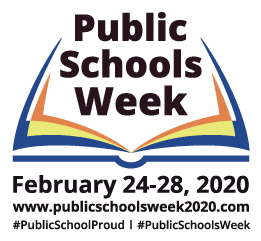 To show support and help advocate for public schools in the United States, AACTE is inviting members to add your voice to the thousands of others vowing to stand up for students and schools. The Learning First Alliance (LFA) has launched the Pledge for Public Schools in preparation for Public Schools Week 2020, a national celebration for educators and parents to spotlight the successes of their students and local schools in communities across the nation, and to bring attention to the critical issues facing schools, students, and educators.
To show support and help advocate for public schools in the United States, AACTE is inviting members to add your voice to the thousands of others vowing to stand up for students and schools. The Learning First Alliance (LFA) has launched the Pledge for Public Schools in preparation for Public Schools Week 2020, a national celebration for educators and parents to spotlight the successes of their students and local schools in communities across the nation, and to bring attention to the critical issues facing schools, students, and educators.
LFA reports that U.S. public schools educate 50.8 million students (nine of 10), regardless of ability, race, wealth, language, religion or country of origin. During Public Schools Week 2020, to be held February 24-28, 2020, advocates will take the thousands of pledges to Capitol Hill and state capitals across the country to illustrate to lawmakers how many people are supporting America’s public schools.
Once you take the pledge, LFA asks that you share on social media using the hashtag #PublicSchoolProud. More updates and events leading up to Public Schools Week will be announced at learningfirst.org/publicschoolsweek.
To learn more about LFA, visit learningfirst.org.
26 Nov2019
By Jacqueline Rodriguez
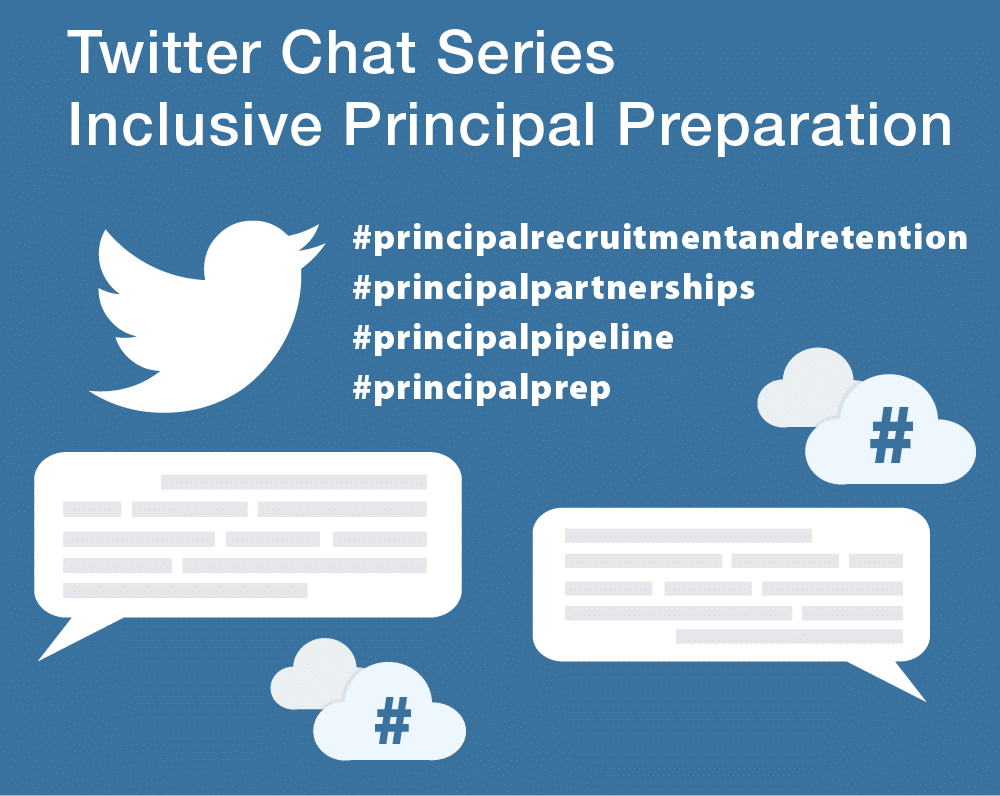
In collaboration with the Wallace Foundation, AACTE is launching a Twitter Chat Series in December dedicated to elevating Inclusive Principal Preparation. The four Twitter chats align with our ongoing Inclusive Principal Preparation Webinar Series. The Twitter chats will provide ample space to continue discussing principal preparation with you—our leaders in the field of principal and leader preparation.
Twitter allows participants to engage in conversations, follow exchanges, and locate chats through a dedicated hashtag. To participate, use the hashtags below to locate and participate in the Twitter Chat Series.
The dates for the upcoming Inclusive Principal Preparation Twitter Chat Series are also below. Each Twitter chat will take place from 5:00 – 6:00 p.m. The associated webinars are accessible via the provided links. Remember, the fourth webinar is still open for registration!
- Tuesday, December 3 – The Challenges and Successes of Principal Recruitment and Retention
#principalrecruitmentandretention
- Thursday, December 5 – Successful University and District Partnerships for Preparing Principals #principalpartnerships
- Wednesday, December 11 – From Teacher to Principal: Educational Leadership Tracking Systems
#principalpipeline
- Wednesday, December 18 – What Should High-Quality Principal Preparation Look Like?* (*Link to register for the final webinar.)
#principalprep
20 Nov2019
By Maria Hyler

On November 14, I had the privilege of moderating the first in a series of webinars produced through a partnership of AACTE and the Educator Preparation Laboratory (EdPrepLab). This webinar, “Social and Emotional Learning, Cultural Competence, and Equity in Teacher Preparation,” will be followed by three others focusing on transformative research and practice in educator preparation.
Joining me for the webinar were Nancy Markowitz of the Center for Reaching and Teaching the Whole Child, Patty Swanson from San Jose State University, Pat Norman from Trinity University, and Mari Jones from the HighTech High Graduate School of Education.
Both Trinity and High Tech High, where Norman and Jones teach, are members of the EdPrepLab network. EdPrepLab, which launched this year, is an initiative of the Learning Policy Institute and the Bank Street College of Education that aims to strengthen educator preparation in the United States by linking research, policy, and practice and by supporting and expanding preparation that is equity-focused, student-centered, and grounded in the science of learning and development.
29 Oct2019
By Jacqueline Rodriguez

AACTE is excited to partner with the Educator Preparation Laboratory (EdPrepLab), an initiative of the Learning Policy Institute (LPI) and Bank Street College of Education, to bring a series of webinars to members. Educator preparation programs across the country can access AACTE and EdPrepLab resources to support their teaching, research, and policy in higher education.
In this series of webinars, our members will hear from member institutions, stakeholders, scholars, practitioners, and policymakers as presenters dive into topics that will include addressing social emotional learning, cultural competence, creating inclusive classroom and school environments, and teacher residency models.
We hope you will register for our first webinar on Social and Emotional Learning, Cultural Competence, and Equity in Teacher Preparation that will take place on November 14 at 3:00 p.m ET. The panel of experts include:
29 Oct2019
By Caitlin Wilson
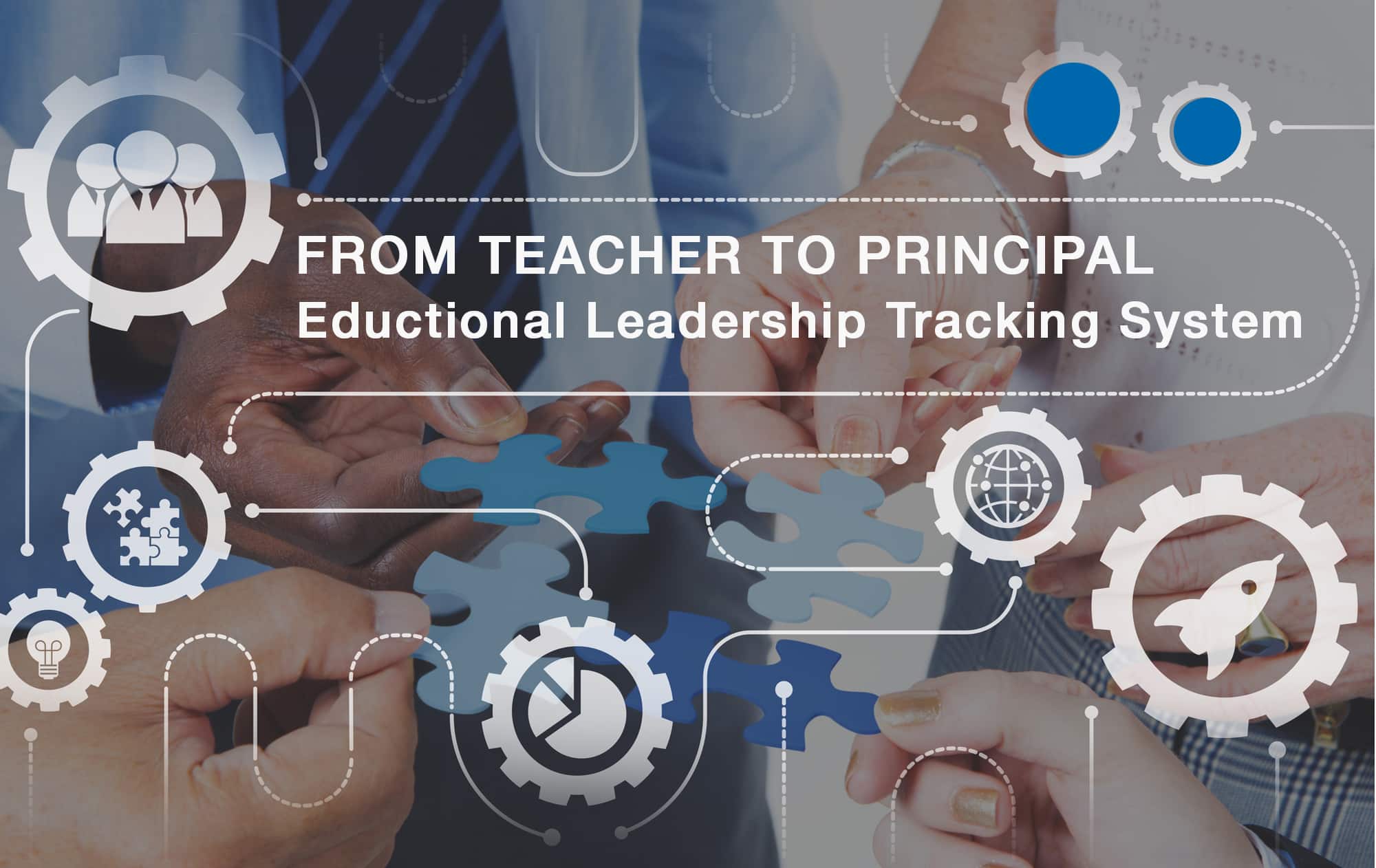
Join AACTE for a webinar, Teacher to Principal: Educational Leadership Tracking Systems, which will take a closer look at the leader tracking systems created as part of the Wallace Foundation’s Principal Pipeline Initiative. Nicholas Pelzer, program officer from the Wallace Foundation will provide an overview on how the leader tracking systems were developed. Leslie Anderson, managing director of Policy Studies Associates and Tricia McManus, assistant superintendent of leadership, professional development, and school transformation, Hillsborough County Public Schools, will share their perspectives and experiences on how data-driven decision making can inform the recruitment, preparation, and placement of principals.
Please register and attend this webinar on November 6 at 1:00 p.m. to consider how leader tracking systems can strengthen both teacher and leadership pipelines through partnerships with local school districts.
07 Oct2019
By Danny Carlson
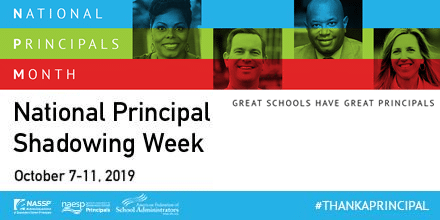
October is National Principals Month —a month to honor our nation’s principals and the important work they do leading schools. Led by the National Association of Elementary School Principals (NAESP), the National Association of Secondary School Principals (NASSP), and the American Federation of School Administrators (AFSA), this annual celebration recognizes our nation’s principals for their tireless dedication to their students and the schools they serve.
To effectively lead a school, today’s principal must fulfill the role of instructional leader and create the learning conditions to support teaching and learning. To do this, principals are in classrooms, observing instruction, engaging with teachers in the nuts-and-bolts of leading learning communities, and connecting teachers with professional learning opportunities. Thus, principals are now more than ever multipliers of effective teaching and possess an enormous capacity to impact student achievement.
Simply put: You can’t have a great school without a great principal. Whether it’s supporting their teachers, ensuring students have access to nutritious meals, or making parents and families feel engaged and welcome their child’s school, principals make it happen.
Despite the many rewarding aspects of the principalship and its importance in improving teaching quality and boosting student outcomes,
26 Sep2019
By Ana-Maria Gutierrez
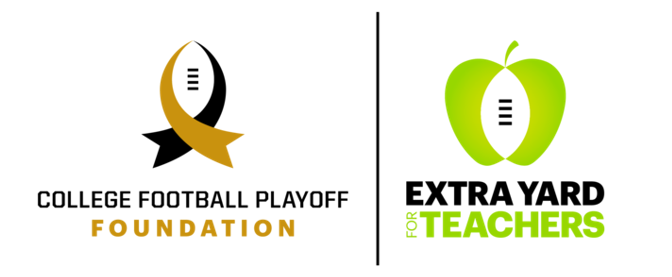
AACTE is partnering with the College Football Playoff (CFP) Foundation program, Extra Yard for Teachers, a platform to elevate the teaching profession using the high profile of college football through four pillars: resources, recognition, recruitment, and professional development.
Through the four pillars, the CFP Foundation supports early childhood through secondary education across the country by sponsoring a number of activities. These activities include donating money directly into classrooms for supplies; sponsoring “Extra Yard for Teachers Week” during which universities, conferences, and the ESPN sports channel come together to celebrate teachers across the country; and convening the Extra Yard for Teachers Summit to empower and inspire educators.
To keep up to date on the ongoing CFP Foundation programs and special events that support teachers, AACTE members can subscribe to The Extra Yard official eNewsletter. Learn more about the organization and how it impacts positive educational outcomes, visit cfp-foundation.org.
11 Sep2019
By Katrina Norfleet
The just released 2019 Data Quality Campaign (DQC) National Poll reports that those closest to students—parents and teachers—are eager for leaders to take actions that reflect a bold vision of data use to improve student outcomes in K–12 and beyond. The findings, released on September 10, show that 90% of parents say they need data to understand their child’s progress and help them do their best. Of the teachers who were polled, 86% believe using data is an important part of being an effective teacher.
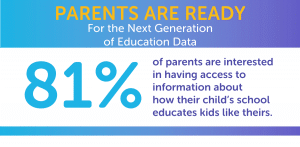
In the brief, Parents are Ready for the Next Generation of Education Data, data show that parents believe student journeys don’t end with K–12. Parents see
09 Sep2019
By Joanne Van Boxtel and Heather Taylor Wizikowski

This article and photo originally were originally published in SmartBrief Education and are reprinted with permission.
We all know the numbers are sobering. A 2018 brief from the Council for Exceptional Children showed critical shortages of special education teachers in 48 states and the District of Columbia. Fifty-one percent of all school districts and 90% of high-poverty school districts report difficulty recruiting highly qualified special education teachers. The exit rate for special education teachers is nearly twice that of general education teachers and enrollment in teacher training programs has declined by 35% over the previous five years.
It seems a dismal picture, but there is light at the end of the tunnel — one that prepares teachers to enter this dynamic field and equips them with tools to help them skillfully and confidently persist in the profession.
30 Aug2019
By Lynn M. Gangone
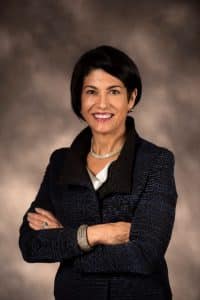 While serving on this year’s (Phi Delta Kappan) PDK Poll Advisory Board, I listened and collaborated with scores of thought leaders in the education ecosystem—The National Education Association, The Learning Policy Institute, The Learning First Alliance, The Gay, Lesbian and Straight Education Network, among others. We determined what approaches to take to quantify, understand, and disseminate the vast amount of information and data garnered from this extremely worthwhile and useful poll. We discussed the results and how they could be utilized to advance 21st century classrooms, its students, and those who lead them.
While serving on this year’s (Phi Delta Kappan) PDK Poll Advisory Board, I listened and collaborated with scores of thought leaders in the education ecosystem—The National Education Association, The Learning Policy Institute, The Learning First Alliance, The Gay, Lesbian and Straight Education Network, among others. We determined what approaches to take to quantify, understand, and disseminate the vast amount of information and data garnered from this extremely worthwhile and useful poll. We discussed the results and how they could be utilized to advance 21st century classrooms, its students, and those who lead them.
What is the importance of the PDK Poll?
This year’s PDK Poll was entitled, “Frustration in The Schools: Teachers Speak Out on Pay, Funding, and Feeling Valued.” The new release is one of several polls PDK has conducted to examine opinions on public education for more than 50 years. The poll, according to PDK, is “a steady reflection of U.S. opinion about public education.” Its results are meaningful because they offer an annual review of one of the most important parts of our society—public schools, and focuses on of some our nation’s most crucial people—teachers. The poll measures opinions on the value of a public-school education and its teachers while giving us a sense of how our schools are supported, or more importantly, how they are not supported. It gives us a hypothetical picture of what the future of the educational world might hold and enlightens us about current issues from the perspective of the public. It informs and helps us contemplate how students are changing and what we, as educators, need to do to support and foster
14 Aug2019
By Arlene Borthwick, Jon Clausen, Teresa Foulger and David Slykhuis
This article and photo originally appeared on the Advancing Research & Innovation in the STEM Education of Preservice Teachers in High-Need School Districts (ARISE) website and are reprinted with permission.
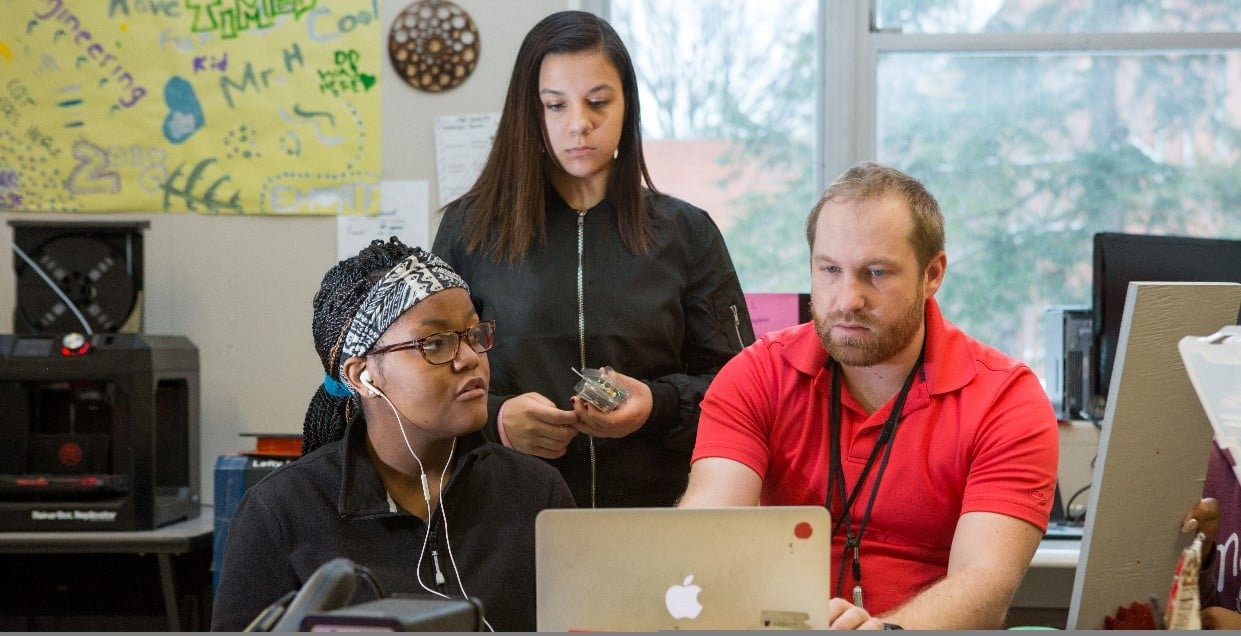
Despite heavy investment in STEM (e.g., STEM for ALL), most PK-20 science, technology, engineering, and mathematics instruction remains heavily siloed. To date, educators have not agreed on a clear definition of STEM. Is it curriculum or a teaching technique/pedagogy? Can a science lesson be called STEM, even if the other domains are not fully represented? As technology advocates, we think STEM curricula should have a strong representation from all four domains.
The STEM movement was intended to address science, technology, engineering, and mathematics in order to produce students who are prepared for the unique needs of today’s workforce. With regard to the “T” component of STEM, the only way to develop teacher candidates who fully embrace the power of technology for P12 is to infuse technology throughout their preparation.
A “technology infusion” approach
14 Aug2019
By Jacqueline Rodriguez
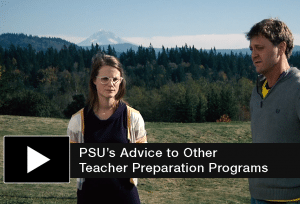 As the student population has diversified so has our understanding of the general education classroom, specifically who we serve in an inclusive setting. Our students with special education services are learning the majority of their grade level curriculum in general education classrooms. This paradigm shift requires effective collaboration between service providers and teachers as well as a deep understanding and application of differentiation to meet the needs of all students.
As the student population has diversified so has our understanding of the general education classroom, specifically who we serve in an inclusive setting. Our students with special education services are learning the majority of their grade level curriculum in general education classrooms. This paradigm shift requires effective collaboration between service providers and teachers as well as a deep understanding and application of differentiation to meet the needs of all students.
For years, the two fields of general education and special education have been siloed. Persistence and partnership is how
09 Aug2019
By Jacqueline Rodriguez
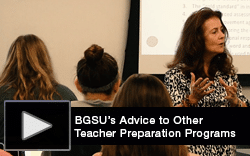 The key to developing the Bowling Green State University (BGSU) dual licensure program is reaching out to the local area to ensure the program is built with the local needs at the forefront. “The local data is how the university can drive change,” recalls a district leader. Faculty also believe collaboration with the district is central to their mission and their success with candidates. Making connections with the field office and the supervising teachers ensured faculty could relate what candidates were seeing in the field to what they were learning in their coursework.
The key to developing the Bowling Green State University (BGSU) dual licensure program is reaching out to the local area to ensure the program is built with the local needs at the forefront. “The local data is how the university can drive change,” recalls a district leader. Faculty also believe collaboration with the district is central to their mission and their success with candidates. Making connections with the field office and the supervising teachers ensured faculty could relate what candidates were seeing in the field to what they were learning in their coursework.
University systems must also be taken into consideration, especially when working across colleges and across departments. Two questions drove the BGSU program leadership as they developed their dual licensure program: What is best for our students in this program? An what is best for this program? One significant concern was finding strong clinical placements for each teacher candidate. The success of a program with hundreds of teacher candidates rested with strong clinical partnerships.
Finally, serving all students that walk into the classroom was the priority when developing the dual licensure program at BGSU. “This wasn’t an experiment, this is the way BGSU does business,” reflected a faculty member. It was a choice to move away from single licensure that, over time, changes the makeup of the district teaching population, which is why district leaders were involved at every step in the program development.
To learn more, watch the Advice to Others video highlighting BGSU’s Models of Inclusive Clinical Teacher Preparation, part of AACTE’s Research-to-Practice Spotlight Series.








 To show support and help advocate for public schools in the United States, AACTE is inviting members to add your voice to the thousands of others vowing to stand up for students and schools. The Learning First Alliance (LFA) has launched the
To show support and help advocate for public schools in the United States, AACTE is inviting members to add your voice to the thousands of others vowing to stand up for students and schools. The Learning First Alliance (LFA) has launched the 






 While serving on this year’s (Phi Delta Kappan) PDK Poll Advisory Board, I listened and collaborated with scores of thought leaders in the education ecosystem—The National Education Association, The Learning Policy Institute, The Learning First Alliance, The Gay, Lesbian and Straight Education Network, among others. We determined what approaches to take to quantify, understand, and disseminate the vast amount of information and data garnered from this extremely worthwhile and useful poll. We discussed the results and how they could be utilized to advance 21st century classrooms, its students, and those who lead them.
While serving on this year’s (Phi Delta Kappan) PDK Poll Advisory Board, I listened and collaborated with scores of thought leaders in the education ecosystem—The National Education Association, The Learning Policy Institute, The Learning First Alliance, The Gay, Lesbian and Straight Education Network, among others. We determined what approaches to take to quantify, understand, and disseminate the vast amount of information and data garnered from this extremely worthwhile and useful poll. We discussed the results and how they could be utilized to advance 21st century classrooms, its students, and those who lead them.
 As the student population has diversified so has our understanding of the general education classroom, specifically who we serve in an inclusive setting. Our students with special education services are learning the majority of their grade level curriculum in general education classrooms. This paradigm shift requires effective collaboration between service providers and teachers as well as a deep understanding and application of differentiation to meet the needs of all students.
As the student population has diversified so has our understanding of the general education classroom, specifically who we serve in an inclusive setting. Our students with special education services are learning the majority of their grade level curriculum in general education classrooms. This paradigm shift requires effective collaboration between service providers and teachers as well as a deep understanding and application of differentiation to meet the needs of all students. The key to developing the Bowling Green State University (BGSU) dual licensure program is reaching out to the local area to ensure the program is built with the local needs at the forefront. “The local data is how the university can drive change,” recalls a district leader. Faculty also believe collaboration with the district is central to their mission and their success with candidates. Making connections with the field office and the supervising teachers ensured faculty could relate what candidates were seeing in the field to what they were learning in their coursework.
The key to developing the Bowling Green State University (BGSU) dual licensure program is reaching out to the local area to ensure the program is built with the local needs at the forefront. “The local data is how the university can drive change,” recalls a district leader. Faculty also believe collaboration with the district is central to their mission and their success with candidates. Making connections with the field office and the supervising teachers ensured faculty could relate what candidates were seeing in the field to what they were learning in their coursework.